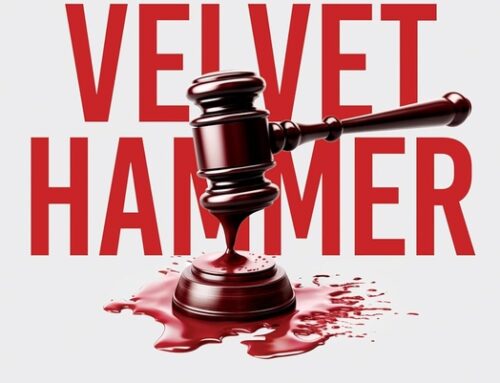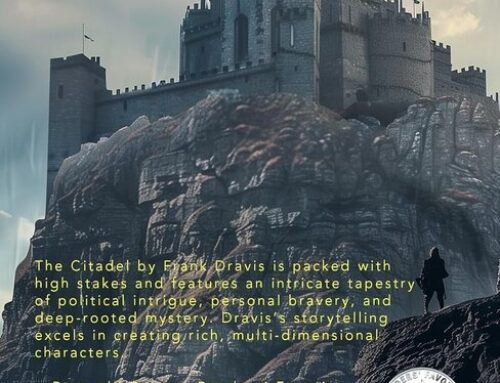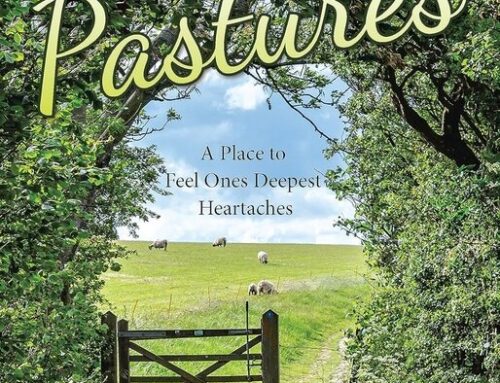
Now that self-publishing is a legitimate way to go, is it something you should consider? The “About” page for this site says,
The aim of this site is to legitimize self-publishing – not just as a fallback plan, but as an avenue that’s increasingly necessary and useful in a competitive publishing industry.
This may need to be revised because more often than not self-publishing should be a fall back plan. Given the fact that distribution is better with a traditional press – especially mainstream publishing – it is preferable to self-publishing. Yes, there are arguments for building a readership outside the walls of the gatekeeper, but you can’t deny that widespread brick and mortar distribution and an expanded outlet for reviews is helpful. As I’ve written here before: mixing together the will of the self-publisher with the distribution network of a traditional publisher and whatever marketing muscle they put behind a book is preferable to totally going it alone.
I don’t totally buy the profit angle (self-publishers make more money) because it’s so much harder to sell books. Retaining rights is a better argument: your book will never go out print, as is the idea that you have complete creative control. But: it’s possible to have the latter with a traditional press. And what’s more important: selling 20,000 books or retaining rights? These are the questions you should be asking. Of course, selling 20,000 books isn’t a given with a trad publisher, but it is more likely.
In a long thread on Publishers Weekly, which started with a criticism of an interview I gave to a Sacramento paper, the blogger of the piece, Rose Fox, commented:
Henry: Given the willingness of major genre publishers to publish books by authors who combine and switch among genres–Iain (M.) Banks, Catherynne M. Valente, Michael Chabon, Maureen McHugh, Sharon Shinn, Richard Morgan, Terry Pratchett, Mary Robinette Kowal, Jay Lake, Scott Westerfeld, China Miéville, Jim Butcher, Cherie Priest, Alaya Dawn Johnson, and Daniel Abraham/MLN Hanover come to mind, just off the top of my head–I remain baffled by your assertion that traditional publishers would be reluctant to buy a good book from such an author. Every traditional publisher I’m aware of also publishes debut novels…
She’s right, the publishing industry doesn’t totally suck. Good books are traditionally published all the time. Some of my best friends are traditionally published books! At the same time, how many submissions are enough before a writer takes it into his or her own hands? One of the oft-mentioned criticisms of self-publishers is, “If it’s not good enough to be traditionally published, it’s not good enough.” Wrong. There are any number of reasons that a book might be rejected and they’re not all based on the merits of the book – it may just have to do with the financial status of the publisher, which right now is not particularly positive for many publishers.
So a writer might get a number of responses about a book –
- “We love this but our list is full.”
- “We hate this.”
- “The writing’s good, but it’s a tough market right now.”
Now multiply that by the hundreds of mainstream and indie presses – those that accept unagented submissions. Not only is it time consuming to submit to so many places, it’s expensive. If you have an agent, he or she might only send the book out to 15 places before giving up- are these 15 the final word about the book? Imagine spending months querying agents and then months more waiting for an agent to send it out to only a handful of publishers. When you tack this onto the years it might take to write the book, it’s understandable if writers want to avoid this process altogether. The process may be fruitless – not only in the sense of not getting picked up by a publisher, but even if you do break through, this is no guarantee that your book is going to get close attention.
I wouldn’t recommend my attitude towards self-publishing to everyone because my situation is unique (as is everyone’s). I’ve been through the system several times. I’ve had 4 agents, a separate foreign rights agent, I’ve been translated, etc. I’ve also gotten countless responses from agents and editors that were totally and frustratingly off-base. I know when I’ve written well or poorly and when something is being rejected for unreasonable reasons. My devotion to self-publishing is in part a result of too many annoying responses that didn’t have a lot to do with the writing.
A publishing climate that is pervasive with “We love this, but…” or “This is tough to market” just doesn’t seem to be worth the time. I like the creative freedom of self-publishing, as well as the knowledge that I’m creating my own literary fate. I could send my current book out for a year and see if I could land a book deal, but I don’t want to any longer. Been there/done that and it’s exciting to be part of something that has such great implications for writers. Being a part of this revolution in publishing is invigorating, even if it’s a difficult path when compared to the dream book deal. If self-publishing can be a stepping stone to a good book deal, then great – and in increasing numbers, it has been. I won’t be someone to say that mainstream publishing is bad, even if the system is flawed, because they can help put books in readers’ hands.
But what if you’re just starting out or you’re not yet jaded by the process? I’d recommend trying to go the traditional route and see what happens. Check the rejections you get – because not all rejection is totally unwarranted. And don’t necessarily self-publish a book just because it’s written. Me, I wrote two novels before the book that was published as my first novel. I’m glad those were never published because they’re bad. Then again, good things can happen if you publish – including getting helpful feedback – so I’d never dissuade anyone from self-publishing a first novel. Just make sure it’s worth having a stranger read.
So should you self-publish? Yes, if:
- It’s gone through the query/submission process and gotten good responses, but no bites.
- You want to avoid the process altogether and you have the book professionally edited.
Basically it comes down to that. There are other reasons to self-publish – such as profit margin, niche writing, built-in fan base, retaining rights, etc. but those are the two main things you should be addressing. Do you have the patience to query? Then stick with it a little longer – because I’ll always argue that national distribution is better. Do you have the patience to market the hell out of your book and want your book to come out ASAP? Then jump to #2. All in all, the question shouldn’t be if self-publishing is legitimate, but if it’s useful. There’s no way to make a general proclamation about that: it depends on the writer.
Get an Editorial Review | Get Amazon Sales & Reviews | Get Edited | Get Beta Readers | Enter the SPR Book Awards | Other Marketing Services






















Good article! I thoroughly agree.
Although, come to think of it, I would add one point. Country of origin _might_ come into the debate too. I’m in Australia, and if my work is picked up by a local publisher, I may find myself restricted to an Australian market. Limiting, to put it mildly. It’s possible that self-publishing will actually increase, not decrease, distribution of my work.
Henry, I have just posted a comment on the Publisher’s Weekly thread to which you refer, which you may like to look at.
I have recently published a book myself and have been browsing the relevant blogs to see what the ‘word on the street’ is regarding same. I have been stunned by the vitriol and mockery I have come across. What does the establishment fear so much? That woman at Publisher’s Weekly actually used the word ‘hate’!
I really do not see self-publishing as any different in principle from recording your own CD, making your own go-kart, painting your own picture or building your own house. People do it all the time with varying degrees of success. It is only recently that technology has enabled ordinary people to publish their own books and why shouldn’t they? How dare anyone insist that they have them professionally edited and polished? In many cases this would actually be detrimental to a book. If Aunty Dolly wants to publish a memoir for her family and friends you can be sure that they want to hear Aunty Dolly coming off the page, warts, mis-spellings, dodgy commas and all, not some bland, highly-polished nobody. And if Grandpa wants to record his experiences mining gold in the Yukon while blind and one-legged with no education, why the hell shouldn’t he, just because he doesn’t write in a style that attracts bored people in airports?
The same applies to the writing of children and primitives, or illiterates with a story of which their illiteracy is an integral part. The art world doesn’t seem to have a problem with this sort of thing; why are these literary types so hysterical about it? If they only want to read books that have been filtered through commercial publishers, good luck to them, there is no law forbidding it. But they are fools if they believe those commercial filters to be a guarantee of quality.; or that no good material can be found elsewhere.
Reminds me of Don Justo, who spent virtually his whole life building a cathedral single-handed using only pick, shovel and wheelbarrow. That inspired me, where the sight of famous St John’s Chapel in Cambridge, UK just made me think ‘what a lot of effort for a building’. Even though dear old DJ did have a few concrete commas in the wrong place.
Anyway, judging by the spiteful mockery I see constantly hurled at self-publishing, I can only assume they are all mortally affronted, or afraid. The common plebs publishing books? They’ll be wanting the vote next. Must be those awful Punk Rockers again, blowing their noses on their sleeves.
They’re feeling the pinch of the economy. The specter of all the layoffs last winter are hanging over their heads. They know they’re losing control of their gatekeeping status because GOOD, SAVVY writers are coming out of the woodwork in droves. In short, they’re feeling a bit threatened that their place in the world might become irrelevant. If they would adapt, the upstart mentality would work in their favor, but they want to hold on to the way it’s always been done.
The screaming and bitterness and hatred will get worse before it fades. And it’ll fade.
Oopsie. That first sentence was a quote from SleepyJohn.
Henry,
Well-written, intelligent article that says something I haven’t read before. Having ultimately gone the self publishing route, with all the learning curves and tremendously diffiult work it entails, I’d think twice before doing it this way again. I have no answers, only my own story to tell. In the end, the most detrimental thing that happened during the process of going it “alone” is the money spent. Don’t get ripped off. Do your research. Don’t take on more than you can do. It’s more work than you think. The idea that you have complete creative control really means a lot of time, energy, and money if you want to be successfull, and who doesn’t want that?
I look forward to your review of East Garrison soon.
G.M. Weger
Henry: Have you ever had your manscript pre-judged on other people’s assumptions? As in “we won’t read this, because this kind of thing doesn’t sell”? or “We don’t like that genre” (When you haven’t specified one?) or “We haven’t heard of you, so you can’t possibly be a good writer” ? of “We only accept material from agents we like (without saying who the elect are) ? or “Your manuscript is over 400 pages, so your book is too long for our list”?
Those aren’t even turn-downs. Those are arbitrary rules that have nothing to do with what you’ve written. Why spend money to send material to people who do this and then wait months for that kind of reply when you can spend the time creating a great book?